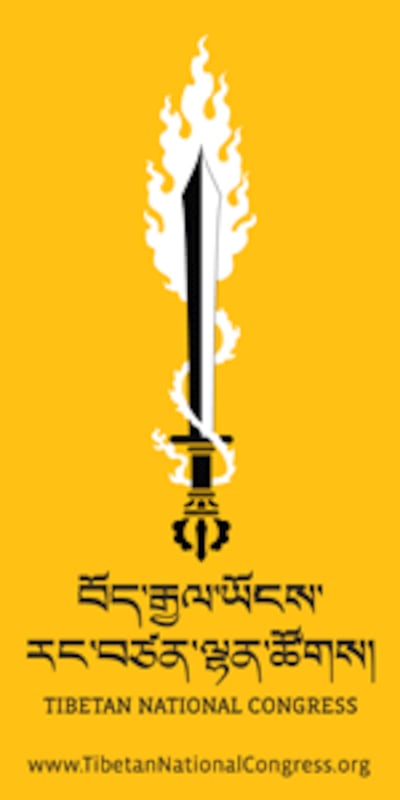Exiled Tibetans have launched a new political party focused on restoring an independent Tibet, a move analysts say will add to the debate on devising a more effective international strategy for the political future of the Himalayan region.
Formally announced on Feb. 13 in New York and Paris, the Tibetan National Congress (TNC) seeks to represent the views of independence-minded Tibetans in the Tibetan community and in Tibet’s democratic government in exile, party spokesman Jigme Ugen told RFA in an interview.
“Naturally there will be different viewpoints about what is the best course to take, but I believe that Tibetan democracy is ready at this point for those viewpoints to be respectfully and openly debated through constructive political participation.”
“We expect more members to come out from other organizations and from the broader Tibetan society who really believe not just in Rangzen [independence] but in democracy. TNC will help form a common platform,” Ugen said.
In spite of a history of sometimes sharp disagreements between independence advocates and proponents of a greater autonomy for Tibet within China, the move was cautiously welcomed by observers of Tibetan exile politics and Tibet’s freedom struggle.
Tibet lost its independent status when Chinese Communist troops marched into the self-governing region in 1949, and Tibet’s spiritual leader the Dalai Lama fled into exile in India a decade later after a failed national revolt against Chinese occupation.
“The emergence of any entity that has the right motivation and aspires for the common good of the Tibetan people can only strengthen Tibetan democracy,” Bhuchung Tsering, vice president of the Washington-based International Campaign for Tibet, told RFA.

Disputes over policy
Divisions have long persisted in the Tibetan exile community over questions of how best to advance the rights and freedoms of Tibetans living in China-governed areas.
In a “Middle Way” policy approach to the problems of Tibet, the Dalai Lama and the Dharamsala, India-based Central Tibetan Administration (CTA), Tibet’s government in exile, have accepted the region’s present status as a part of China, while urging greater cultural, religious, and political freedoms for the Tibetan people.
But talks between Beijing and envoys of the Dalai Lama over issues related to Tibet stalled in 2010, with Chinese officials rejecting many of the positions of the Tibetan side.
Over 100 Tibetans have meanwhile set themselves on fire in self-immolation protests challenging Beijing’s rule.
“We acknowledge the sincere efforts and hard work initiated by His Holiness the Dalai Lama to resolve the Tibetan issue,” Jigme Ugen said. “But we believe the Chinese have not reciprocated in kind and have actually abused the good faith and intention behind the Middle Way approach.”
“We strongly believe that the only way for the Tibetan people to survive as a race and culture is to restore our own country, governed by our own people,” he said.
A better approach?
Speaking in an interview, Columbia University Tibet scholar Robbie Barnett said that efforts by Tibetan independence advocates to articulate their views have been marked in the past by “strong divisions within the community, and often a sense of rancor and disappointment and even bitterness.”
By positioning itself now as a political party within Tibet’s growing exile democracy, the TNC may be trying to re-start that conversation in a “more effective” way, Barnett said.
“It may be that this movement plans to promote the view that there can be shades of opinion and variations of strategy within a largely common idea of broad objectives, and this could be very positive.”
Following its February launch, the Tibetan National Congress is set to begin a membership drive, with applications accepted online, and plans a Sept. 2 General Assembly and Election to be held in Dharamsala, Jigme Ugen said.
At that meeting, a TNC Executive Board will be selected and a TNC constitution will be ratified by party members, Ugen said.
Reported by Richard Finney.
